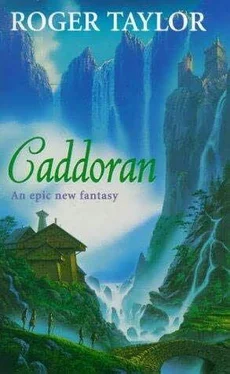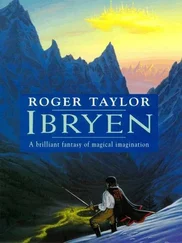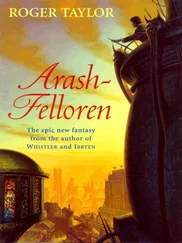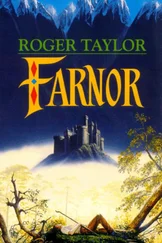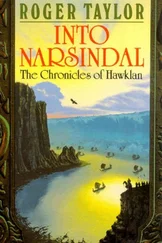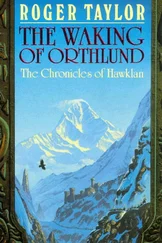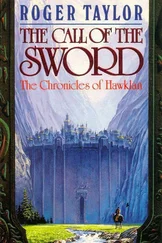Roger Taylor - Caddoran
Здесь есть возможность читать онлайн «Roger Taylor - Caddoran» весь текст электронной книги совершенно бесплатно (целиком полную версию без сокращений). В некоторых случаях можно слушать аудио, скачать через торрент в формате fb2 и присутствует краткое содержание. Жанр: Фэнтези, на английском языке. Описание произведения, (предисловие) а так же отзывы посетителей доступны на портале библиотеки ЛибКат.
- Название:Caddoran
- Автор:
- Жанр:
- Год:неизвестен
- ISBN:нет данных
- Рейтинг книги:3 / 5. Голосов: 1
-
Избранное:Добавить в избранное
- Отзывы:
-
Ваша оценка:
- 60
- 1
- 2
- 3
- 4
- 5
Caddoran: краткое содержание, описание и аннотация
Предлагаем к чтению аннотацию, описание, краткое содержание или предисловие (зависит от того, что написал сам автор книги «Caddoran»). Если вы не нашли необходимую информацию о книге — напишите в комментариях, мы постараемся отыскать её.
Caddoran — читать онлайн бесплатно полную книгу (весь текст) целиком
Ниже представлен текст книги, разбитый по страницам. Система сохранения места последней прочитанной страницы, позволяет с удобством читать онлайн бесплатно книгу «Caddoran», без необходимости каждый раз заново искать на чём Вы остановились. Поставьте закладку, и сможете в любой момент перейти на страницу, на которой закончили чтение.
Интервал:
Закладка:
But some saw beyond His words and His fairness of face and knew Him for what He was. And they spoke out, denouncing Him and His way. But those whom He had corrupted knew no restraint and put in thrall and to the sword all those who so spoke, making even greater His sway. Yet though enslaved, those who saw the truth would not yield to Him but began also to study His teaching, seeing, to their dismay, that in it lay their only salvation. And there came about the Wars of the First Coming and the world was dark with the fires of degradation and destruction and the air was filled with cries of despair and lamentation.
And so great was the clamour that the greatest of Those who Shaped was awakened from his contemplation and, looking about him, he was filled with both horror and shame, despairing of what he saw and fearing that this had come about through the darkness of his own ignorance. Yet he saw too, that His hand was there, for he knew Him and the knowledge greatly troubled him. And taking the form of man himself he rallied the failing armies of those who still remembered him and after many and terrible battles, drove Him to an awful fastness in the north. And there, in the ninth hour of the Last Battle, faltering under the burden of His sins, He fell to the arrows and spears of men. Though with His final cast he slew the greatest of Those who Shaped.
Yet, some say that neither were truly slain, but were translated into another place and that He may come again should He be forgotten and the vigilance of good men fail.
Thus went the story of the Beginning and the Wars of the First Coming.
There are a myriad lesser tales of that time.
One such tells of a noble people, the Arvensfolk, who, cruelly dispossessed and dispersed for opposing His will, joined the many and fearful wanderings of peoples seeking respite from the Wars of the First Coming. Of the fate of the greater part of the Arvensfolk, nothing is known, but a weary remnant found refuge in the land that was to become Arvenstaat. Yet even here they were persecuted and enslaved by other peoples in that land who, though having been persecuted and driven from their homes themselves, were more numerous and greatly tainted by His teaching.
But the Arvensfolk would not yield and withstood the torments of their enemies, as they had stood against Him, until when it seemed all hope was gone, a great leader arose amongst them and, filling them with his strength, he led them against their oppressors, overthrowing them and sweeping them from the land.
So goes the most common of the legends of the founding of Arvenstaat, though other versions add that, in gaining victory, the Arvensfolk became so like their oppressors that the man – or some say, woman – who led them, walked into the mountains, grieving, and was never seen again.
Written testimony, such as it is, tells a more prosaic, less creditable tale, though in many ways similar in essence: a fugitive people given shelter who rose up under a brutal and shrewd leader to overwhelm and enslave their hosts and seize their lands and properties.
By tradition, no name is ever given to this leader, but from him – or her, for even in the written testimony this is still not known – came the rule of the Dictators. What had been the evil necessity of war became the commonplace of peace and the will of the Dictator came to be accepted as absolute. For while the first Dictator ruled with great brutality, he was nevertheless both respected and held in awe by his subjects, and his excesses were not seen as such. However, it is in the nature of power that it corrupts, and in the nature of leadership that it is a random not a hereditary quality, and while subsequent Dictators emulated the brutality of the first, they lacked his subtle understanding of the mood of his people who, in their turn, knew ever less of the benefits that he had brought to the Arvensfolk. Thus, to maintain the obedience of their subjects, the Dictators were obliged to resort increasingly to the use of armed force, gathering about them a body of guards who were given privileged positions in society and ever-increasing power and authority – the Tervaidin.
As is invariably the case with such guardians, the Tervaidin gathered so much power to themselves that in time they became the effective rulers of Arvenstaat, appointing and unseating Dictators as the whim took them. Ironically, because they too became corrupted and weakened by power, their final choice of Dictator, Koron Marab, was able to divide them amongst themselves and very effectively reduce their authority. Yet by a further irony, this triumph was short-lived, for it was this same division that enabled Akharim to enlist sufficient of the Tervaidin to act as passive witnesses to his own rise to power. Only when he had killed Marab did the Tervaidin fully realize that Akharim, in affecting to rule through the Moot, had judged the mood of the people very finely, and had left them no opportunity to deal with him as they had done with his predecessors. Following their honoured tradition of self-interested opportunism they therefore swore allegiance to him. Thence, over generations, they were gradually transformed into the force that became the Wardens.
Long before the time of Akharim, the Wars of the First Coming had faded into legend, and, no further cataclysms shaking the world, its many peoples went their own ways – some would say degenerating into surly mediocrity, others would say moving inexorably, if unsteadily forward to ever quieter, more peaceful times. Whatever the truth, it was indisputably the case that the Arvens knew little real tyranny and still less menace from beyond their borders for many generations and, in the course of reaching their present condition, they came to regard the times of both Marab and Akharim as colourful and romantic – a gloss made possible only by virtue of the distance of the brutal reality of those times. Thus in those discussions concerning the repairing of the perceived faults of governance which featured regularly in taverns and hostelries throughout the land, voices could often be heard declaiming the virtues of the ‘good old days of the Dictators’.
Caught also in the spurious glow from this distant time, the Tervaidin too were usually seen indistinctly, invariably being represented as a disinterested professional elite, full of soldierly virtues and working only for the good of the people. Many fine and stirring stories had been written about their valiant adventures. That they had never been this and had fallen progressively further from even their original state was well documented but ignored in popular culture. Almost certainly, this rainbow view started with Akharim’s manipulations to ensure that he retained both the protection of the Tervaidin and control over them, he knowing full well that myth can be far more potent than reality, not least for those being mythologized. Whatever the reason, the name rang well in the ears of the modern Arvens and thus Vashnar chose it for his own guards. It was more appropriate than he would have cared to admit for he intended them to fulfil the functions of the original Tervaidin and, like them, they were a mixture of thugs, opportunists and fanatics.
Vellain knew there would be no point in questioning her husband’s decision. His tone told her that it was final. Nevertheless she did allow her considerable surprise to show.
‘Earlier than you’d envisaged,’ she said.
Vashnar stood up and began methodically stretching himself again. He was unusually stiff. A frowning glance at a tall clock clucking darkly in the corner told him that he had been sitting in the chair for some hours – much longer than he had thought. It disturbed him a little. ‘You’ve delayed our meal,’ he said.
Читать дальшеИнтервал:
Закладка:
Похожие книги на «Caddoran»
Представляем Вашему вниманию похожие книги на «Caddoran» списком для выбора. Мы отобрали схожую по названию и смыслу литературу в надежде предоставить читателям больше вариантов отыскать новые, интересные, ещё непрочитанные произведения.
Обсуждение, отзывы о книге «Caddoran» и просто собственные мнения читателей. Оставьте ваши комментарии, напишите, что Вы думаете о произведении, его смысле или главных героях. Укажите что конкретно понравилось, а что нет, и почему Вы так считаете.
